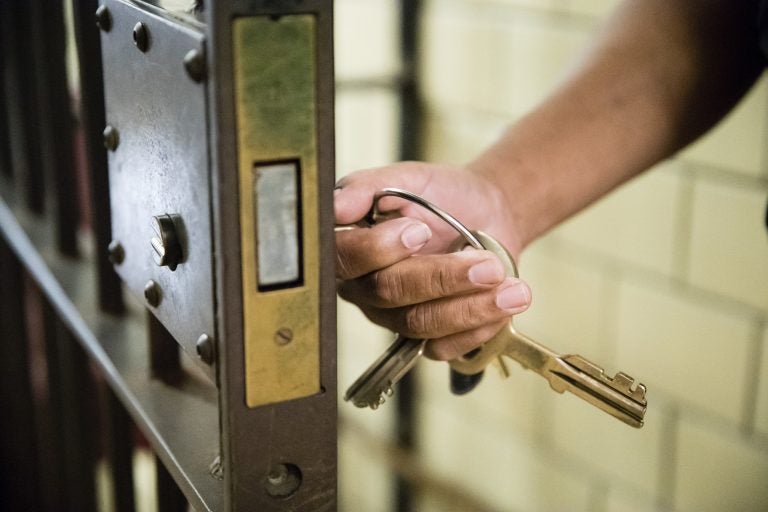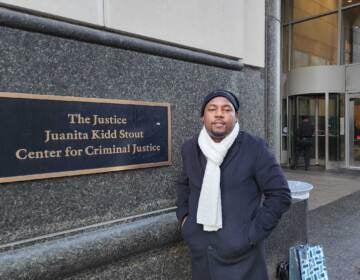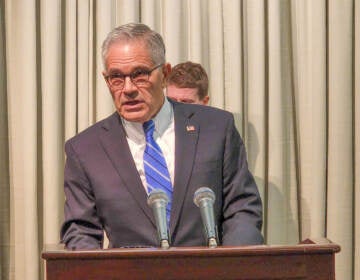ACLU urges Philly bail commissioners to follow the law
The ACLU of Pennsylvania says too many low-income residents are spending time behind bars before trial because they can’t afford bail.

In this Tuesday, Oct. 23, 2018 photo, a guard opens a gate at the deactivated House of Correction in Philadelphia. (AP Photo/Matt Rourke)
The ACLU of Pennsylvania is turning to the state’s high court for help improving Philadelphia’s cash bail system, which it says disproportionately affects low-income residents.
In a new petition filed with the Pennsylvania Supreme Court, the organization argues that arraignment court magistrates — commonly known as bail commissioners — are circumventing state law by jailing criminal suspects simply because they cannot afford to pay bail.
“We’re not saying that we have to release everyone. We’re saying if you’re going to hold someone, follow the rules as to how that should be done. Hold them under the constitutional rubric,” said ACLU attorney Nyssa Taylor. “Hold them because they’re so dangerous that no condition of release can guarantee [public] safety.”
The petition asks the Pennsylvania Supreme Court to order bail commissioners to follow the law. Acknowledging that sounds strange, Taylor said it’s become a critical request given the number of people who are spending time behind bars before being convicted.
“In one breath, the bail magistrate will assign the public defender because the person is too poor to pay for their own attorney. And the next breath, they’ll assign $10,000 to that same person, knowing that that person doesn’t have money for an attorney, he or she is probably not gonna have $10,000 to pay bail,” said Taylor.
David Harrington had a private attorney, but his family could not afford the $250,000 bail set after he was arrested on charges of armed robbery.
He was 16.
“I went back in my cell and they gave me my bail sheet paper. I looked at the bail and I immediately threw it to the floor, ” he said.
Harrington spent eight months in a jail cell before his case was heard by a juvenile court judge. He was originally going to be tried by as an adult.
He was convicted, but sentenced to house arrest and to making restitution. No jail time.
“The system is really corrupted,” said Harrington. “They set a high bail knowing that they won’t be able to pay it.”
Harrington, 21, is now part of the leadership team with the Youth Art and Self-Empowerment Project, a nonprofit that hosts workshops for minors at Riverside Correctional Facility who are being tried as adults.
Youth Art and Self-Empowerment Project is a party to the suit, as are the Philly Community Bail Fund and the #No215JailCoalition.
The ACLU’s petition comes roughly a year after ACLU attorneys tracked the outcomes of about 2,000 bail hearings, which typically last less than five minutes.
Lawyers found that roughly 40 percent of those proceedings involved cash bail.
A spokeswoman with the Administrative Office of Pennsylvania Courts said the agency cannot comment on any potentially pending legal matters.
—
 WHYY is one of 22 news organizations producing Broke in Philly, a collaborative reporting project on solutions to poverty and the city’s push towards economic justice. Follow us at @BrokeInPhilly.
WHYY is one of 22 news organizations producing Broke in Philly, a collaborative reporting project on solutions to poverty and the city’s push towards economic justice. Follow us at @BrokeInPhilly.
WHYY is your source for fact-based, in-depth journalism and information. As a nonprofit organization, we rely on financial support from readers like you. Please give today.





